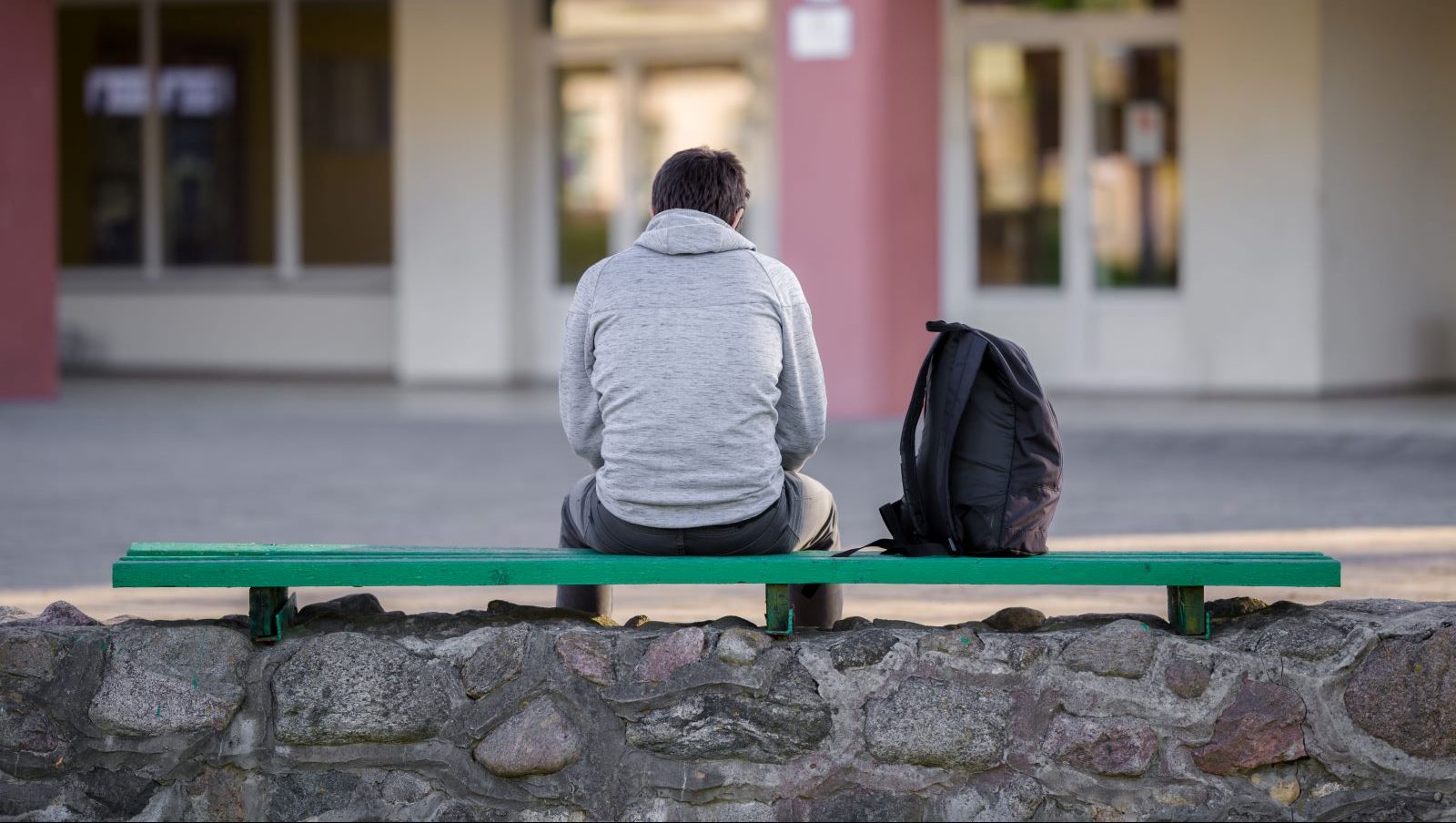Whether you are an adult or child, constant acts of violence like what occurred this week in a Buffalo supermarket and Texas elementary school can be frightening, traumatizing and confusing.
With images and information about these deadly shootings available everywhere, children will no doubt look to parents for guidance. Adults first should do all they can to stabilize themselves so they are able to listen, reassure and offer guidance to children.
Here are some tips for adults from the Hartford HealthCare Behavioral Health Network:
- Take a break. Simply turn off your devices, whether it’s for an evening, a day or longer to flush your system of news overload. If that seems impossible, try setting blocks of no more than an hour once or twice a day to check the news and social media.
- Distract yourself. Sidestep the anxiety that leaves you with a sour stomach or muscle knots across your shoulders by finding something else to do. Go outside for a bike ride, scrub the kitchen counters to a shine or make a snack to savor. These distractions will help you regulate your emotions and your body’s reaction to them.
- Get involved. If a certain social issue is important to you, find a group supporting that issue and find out how you can help. Actively addressing your concerns is less stressful than feeling helpless about them.
- Calm yourself. Create a sense of peace in your space with music, the scent of a nice candle or pretty flowers. Your mind and body need calmness to feel restored.
- Connect with a friend. Chatting via Facetime or Zoom, or in person when possible, is an instant boost to your spirits. In this time of self-isolation, even penning a note to someone is a great way to connect and share.
In an era where shootings have become almost routine in America and children regularly participate in school shooting drills, James O’Dea, PhD, MBA, senior vice president of the Hartford HealthCare Behavioral Health Network, offers these tips to help children cope:
- Encourage them to talk about how they feel, and ask questions.
- Answer questions straightforwardly. If you don’t have the answer, admit it and try to get it for them later.
- Acknowledge their fears, but reassure them that these incidents are not common, and they are safe. For example, many schools have security measures in place to stop something like this from happening.
- Point out the positive. The first responders to the shooting were heroes, much like the 9/11 firefighters.
- Limit their exposure to tragic events in the media, especially television. If they are exposed to media reports or graphic images, try to be there with them so you can explain to them what they are seeing, hearing or reading. If you don’t, they could become confused and frightened.
The National Association of School Psychologists offers this advice for parents to support their children:
- Reassure children that they are safe. Emphasize that schools are very safe. Validate their feelings. Explain that all feelings are okay when a tragedy occurs. Let children talk about their feelings, help put them into perspective and assist them in expressing these feelings appropriately.
- Make time to talk. Let their questions be your guide as to how much information to provide. Be patient; children and youth do not always talk about their feelings readily. Watch for clues that they may want to talk, such as hovering around while you do the dishes or yard work. Some children prefer writing, playing music or doing an art project as an outlet. Young children may need concrete activities (such as drawing, looking at picture books or imaginative play) to help them identify and express their feelings.
- Keep your explanations developmentally appropriate.
- Early elementary school children need brief, simple information that should be balanced with reassurances that their school and homes are safe and that adults are there to protect them. Give simple examples of school safety like reminding children about exterior doors being locked, child monitoring efforts on the playground, and emergency drills practiced during the school day.
- Upper elementary and early middle school children will be more vocal in asking questions about whether they truly are safe and what is being done at their school. They may need assistance separating reality from fantasy. Discuss efforts of school and community leaders to provide safe schools.
- Upper middle school and high school students will have strong and varying opinions about the causes of violence in schools and society. They will share concrete suggestions about how to make school safer and how to prevent tragedies in society. Emphasize the role that students have in maintaining safe schools by following school safety guidelines (e.g. not providing building access to strangers, reporting strangers on campus, reporting threats to the school safety made by students or community members, etc.), communicating any personal safety concerns to school administrators, and accessing support for emotional needs.
- Review safety procedures. This should include procedures and safeguards at school and at home. Help children identify at least one adult at school and in the community to whom they go if they feel threatened or at risk.
- Observe children’s emotional state. Some children may not express their concerns verbally. Changes in behavior, appetite and sleep patterns can also indicate a child’s level of anxiety or discomfort. In most children, these symptoms will ease with reassurance and time. However, some children may be at risk for more intense reactions. Children who have had a past traumatic experience or personal loss, suffer from depression or other mental illness, or with special needs may be at greater risk for severe reactions than others. Seek the help of a mental health professional if you are at all concerned.
- Limit television viewing of these events. Be aware if the television is on in common areas, as developmentally inappropriate information can cause anxiety or confusion, particularly in young children. Adults also need to be mindful of the content of conversations that they have with each other in front of children, even teenagers, and limit their exposure to vengeful, hateful and angry comments that might be misunderstood.
- Maintain a normal routine. Keeping to a regular schedule can be reassuring and promote physical health. Ensure that children get plenty of sleep, regular meals and exercise. Encourage them to keep up with their schoolwork and extracurricular activities, but don’t push them if they seem overwhelmed.
“For young children, we really need to shield them from as much information as possible,” said Laura Saunders, PsyD, of the Institute of Living. “For older kids, we have to provide factual information. There is a lot of uncertainty. [They might ask] why would someone do this? And there are a lot of things we don’t have answers to,” Saunders told NBC-CT. “We need to provide assurances not promises. Assurances that our schools are doing the best they can to keep you safe, and first responders — police and firefighters — do their best to take care of us.”
Saunders urges parents not to project their anxiety while discussing the tragedy with their children and to remind them that school shootings are low probability events. She said one of the best ways for parents and children to cope with tragedies like this is to lean on one another for support.
“It is very much a here we go again sentiment,” Saunders said. “It can be re-traumatizing for some people. It’s a very difficult and painful time in our history,” Saunders said.




